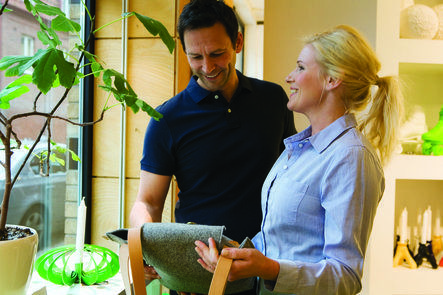Shopping centres in Malmö
In Malmö, there are plenty of options for people who want to do all their shopping in one place to save time and their legs. The city has a number of large, newly-renovated shopping centres with pleasant indoor environments and restaurants that add a little extra to your shopping experience.
In recent years, several new shopping centres have opened in Malmö, while the existing centres have been fixed up and renovated to take on the increased competition. This has made Malmö a real shopping gem!
The latest addition is Emporia in Hyllie, which, with its almost 200 shops and twenty or so cafés and restaurants, is Malmö’s largest marketplace. Behind the beautiful, curved glass facade you’ll find everything you could possibly desire in terms of shopping, spread over three floors. In the heart of the city you’ll find the pedestrian zone favourites Åhléns and Hansa citygalleria, whose exclusive atmosphere pervades all of the 60 shops in the building. Whilst at Triangeln station, you’ll find a shopping centre – also called Triangeln – just 20 metres from the station entrance, boasting 150 shops, cafés and restaurants.
Most shopping centres are open until seven or eight in the evening on weekdays, five on Saturday and four on Sunday. See the individual shopping center websites for more information and for Eater holiday trading hours.
City shopping in Lund
Lund’s inviting city centre has an impressive number of shops offering a widely varied selction. Pleasant shopping streets include Lilla Fiskaregatan, Klostergatan, Skomakaregatan and Stora Södergatan. If speciality shopping is what you are after then Saluhallen in Lund is where you will find it. Some of the city’s best specialty shops for food, drinks and delicacies – and restaurants with truly exciting and exotic cuisine are on offer in this part of the city.
High-end fashion in Helsingborg
Helsingborg is traditionally seen as an old commercial city and is faithful to this history. It also caters for a wide range of shopping tastes and needs. Shopping in the city centre offers a blend of large and small shops in a delightful urban environment on Sweden’s oldest pedestrianised street. Väla shopping centre is located on the outskirts of Helsingborg and offers indoor shopping in well-known chain stores and large department stores including Ikea, Coop and Biltema in the surrounding area. Helsingborg is also known for its wide array of the most up-to-date fashion stores. Most of the nationwide chains are represented, but also trendy specialist shops with the hottest brands from the catwalks in Milan and London are on offer. Helsingborg has a leading position in terms of fashion, and only Stockholm and Göteborg can offer similar opportunities.
Väla, one a Scandinavia´s biggest shopping centres, is located just outside Helsingborg. It is a paradise for shoppers, offering flexible and inspiring shopping, and 47,000 m2 of shops under one roof! Familia Shopping Centre is a lovely new shopping centre located in Hyllinge outside Helsingborg. It has more than 50 shops in fashion, home & interior decoration, electronics, sports and hobby, chemist´s shops and much more. There is also lots of fun activities for the children.
If the hustle and bustle of city shopping is not your style, then the charming and traditional town of Höganäs offers shops with a personal service. Stroll along Storgatan and be inspired by traditional and modern shops. Stop for a coffee before continuing west in the direction of the sea to Köpmansgatan where you will find everything from culinary delicacies to books, fashion and interior decoration with that little bit extra. Enjoy food and drink with beautiful views in our lovely harbour, and don´t miss Höganäs Design Outlet with well-known brands of pottery, glass, shoes and clothes. Höganäs is located just north of Helsingborg along a fantastic stretch of coast.















